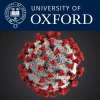Professor Trisha Greenhalgh
Topics discussed include (00:00:25) TG's early career training in diabetes and general practice, background in social sciences and public health, current work at Oxford since 2015, particularly co-leadership of a research team called IRIHS (Interdisciplinary Research in Health Sciences) with Sara Shaw; (00:03:10) doctorate study of unstable diabetes and field work, interest in the narratives of different patients and funding from the Wellcome Trust to collect stories; (00:05:30) conflicts of interdisciplinary research and working with conflicting ideas; (00:07:05) international work with Chinese academics, including Chinese Academic Medicine Course and planned visit from Chinese academic group from Guangdong in March 2020 [which was cancelled due to emergence of COVID-19], collaboration with Chinese contacts particularly relating to the United Kingdom's preparedness; (00:13:01) research on remote consultations, particularly work relating to video GP consultations stemming from 2009 (00:16:30) NHS England, NHS Improvement request for assistance with moving to remote consultations and digital triage, work to produce guidance and standard operating procedures for practices; (00:19:00) the day the pandemic was declared by the World Health Organisation on 11 March 2020 and changes to TG's personal and work life; (00:20:40) pandemic impact on GP practices and front-line healthcare staff; (00:25:15) online focus groups with GP's, advanced nurse practitioners, and paramedics and discussions of their experiences of working with COVID-19 patients; (00:27:35) the writing and publication on 25 March 2020 of a rapid article [Assessing Possible Acute COVID Remotely] for the British Medical Journal on how to assess people in the community using telephone or video consultations; (00:30:04) research funding and projects in response to the pandemic; (00:32:05) Remote-By-Default study; (00:37:34) work with Brendan Delaney from Imperial College, London and Simon de Lusignan on a component of the RBD study and follow up with c.12,000 patients through data linkage; (00:39:08) the importance of oximetry data in assessing patients; (00:43:48) the collective response to the pandemic among the research community; (00:45:00) home life and set-up to deal with COVID response remotely; (00:48:00) Twitter as a data source and way of connecting with people, work with Florian Stiegler and joining a COVID-19 researchers group to share knowledge globally in real time; (00:51:02) social media as a medium for research and the recruiting of patients; (00:53:00) masks and airborne transmission of coronaviruses; (01:02:40) political and ideological views encountered relating to mask wearing; (01:06:45) aerosol science and a lack of experts working in this field within bodies including Public Health England, World Health Organisation and the CDC in America, collaboration with Mustafa Ozbilgin and Damien Contandriopoulos on a paper on heterodoxy and orthodoxy in terms of views taken up by organisations; (01:12:26) work with Kim Prather, Jose-Luis Jimenez on an article for The Lancet '10 scientific reasons why we know that the SARS-CoV-2 is airborne' in April 2021; (01:14:40) the death of TG's mother and the direct impact of this event on her work; (01:19:00) the influence of TG's work on masks and airborne transmission on policy decisions; (01:21:45) evidence-based medicine; (01:25:18) TG's personal experience of COVID-19; (01:27:07) experience of working through the pandemic; (01:31:47) emotional well-being and collaboration with Ninna Meier; (01:37:03) the COVID-19 safety regime at Oxford; (01:40:12) public profile and experience of the media and social media; (01:45:10) association with policy-making bodies; (01:47:03) future research interests and projects. Note: this episode contains language that may be distressing.




